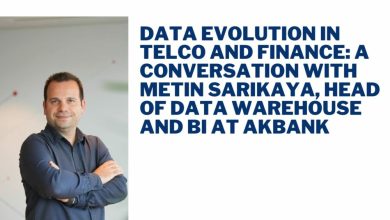Master Coding Trends in 2024 and Stay Ahead of the Curve

Trending Tech: Shaping Today’s Digital Landscape
Coding has surged in popularity worldwide due to its pivotal role in technology’s evolution. As industries digitise and innovate, proficient coders are in high demand. From app development to data analysis, coding skills unlock diverse career paths. This trend reflects a growing recognition of coding’s essential role in shaping our digital future and driving economic growth.
Coding bootcamps are vital for aspiring tech professionals seeking rapid skill acquisition. These intensive programs offer hands-on training in high-demand coding languages like Python and JavaScript. They bridge the gap between education and industry needs, preparing graduates for competitive tech careers in a matter of months. These Online Coding Bootcamp also provide robust job placement support, enhancing career prospects in the evolving digital economy.
Artificial Intelligence (AI) and Machine Learning (ML):
- AI and ML technologies are revolutionising industries by automating tasks and enhancing decision-making processes.
- According to Forbes, the AI market is expected to grow to $190 billion by 2025, driving demand for skilled AI developers.
- Developers are focusing on creating AI models for applications like predictive analytics, natural language processing (NLP), and computer vision.
- Companies across sectors are leveraging AI to improve customer service, optimise operations, and personalise user experiences.
Full Stack Development:
- The demand for complete-stack skills has surged as companies seek developers who can handle entire application development cycles.
- According to Glassdoor, full-stack developers earn an average salary of $113,183 per year in the U.S., reflecting their high market value.
- Developers are mastering frameworks like React.js and Node.js for front-end development and Django or Express.js for back-end development.
Cloud Computing:
- Cloud computing continues to dominate as businesses migrate their operations to the cloud for scalability and cost-efficiency.
- Developers are coding applications that leverage cloud services for storage, compute power, and data analytics.
- The adoption of serverless computing models like AWS Lambda and Azure Functions is simplifying application deployment and management.
Cybersecurity:
- With cyber threats increasing in sophistication, cybersecurity has become paramount for developers.
- Developers are integrating robust security measures such as encryption, multi-factor authentication (MFA), and secure coding practices.
- The demand for cybersecurity skills is growing across industries, with a focus on protecting vulnerable information.
Internet of Things (IoT):
- IoT adoption is expanding, connecting billions of devices and generating vast amounts of data.
- Developers are coding applications that harness IoT devices for smart homes, industrial automation, healthcare monitoring, and more.
- According to Business Insider Intelligence, the number of IoT device installations is expected to reach 83 billion by 2024, driving demand for IoT developers.
- Skills in IoT protocols, data analytics, and edge computing are essential for developers entering this field.
Low-Code/No-Code Development:
- The rise of low-code/no-code platforms is democratising app development, allowing non-developers to create applications with minimal coding knowledge.
- Developers are leveraging these platforms to accelerate development cycles and empower business users to build their solutions.
DevOps and CI/CD:
- DevOps practices are transforming software development by combining development and operations teams to enhance collaborative productivity.
- Developers are implementing Continuous Integration (CI) and Continuous Deployment (CD) pipelines to automate testing, integration, and deployment processes.
- According to a report by Statista, 60% of organisations have adopted DevOps practices, highlighting their importance in modern software development.
Progressive Web Apps (PWAs):
- PWAs combine the top characteristics of web and mobile applications, offering fast, reliable experiences that work offline and on low-quality networks.
- Developers are coding PWAs using technologies like service workers, HTTPS, and responsive design to deliver app-like experiences in web browsers.
- Google has been a strong advocate for PWAs, emphasising their ability to enhance user engagement and increase business conversions.
Blockchain Technology:
- Developers are coding decentralised applications (dApps) that leverage blockchain for secure transactions, smart contracts, and transparent record-keeping.
- According to MarketsandMarkets, the blockchain market is predicted to expand to $39.7 billion by 2025, driven by its adoption in diverse industries.
Remote Work and Collaboration Tools:
- The shift to remote work has accelerated the demand for coding tools that support virtual collaboration, video conferencing, and project management.
- Developers are coding applications and platforms that facilitate remote team communication, file sharing, and real-time collaboration on code repositories.
- Tools like Slack, Zoom, GitHub, and Jira have become indispensable for remote teams, enhancing productivity and team coordination.
Top Coding Opportunities in High Demand and Their Salaries
Coding roles in high demand offer lucrative salaries and robust career prospects both in the U.S. and internationally.
- Web Developer
Average Salary: $77,200 per year (BLS)
Description: Develops and maintains websites using HTML, CSS, and JavaScript.
- Junior Software Developer
Average Salary: $69,000 per year (Glassdoor)
Description: Assists in software application development with Python, Java, and C++.
- Data Analyst
Average Salary: $63,120 per year (BLS)
Description: Analyzes data sets for informed decision-making using SQL, R, and Python.
- IT Support Specialist
Average Salary: $54,760 per year (BLS)
Description: Provides technical support and resolves issues, with basic coding skills as an advantage.
Who Benefits Most from Coding Bootcamps?
Coding bootcamps cater to a wide range of candidates seeking to enter or advance in the tech industry. Fresh graduates and expert professionals looking to level up their existing skills will find these programs invaluable for quickly acquiring practical coding skills. They are especially beneficial for those who thrive in fast-paced, immersive learning environments and are motivated to transition swiftly into tech roles.
According to various reports, coding bootcamps provide focused training on in-demand programming languages and tools, preparing graduates for immediate employment. They emphasise hands-on projects and real-world applications that help candidates create a credible portfolio that showcases their valuable skill sets.
Conclusion
Coding bootcamps often collaborate closely with industry partners to ensure their curricula align with current trends and employer needs. This industry’s relevance enhances graduates’ employability and job placement prospects. Many bootcamp attendees report significant career advancements, including salary increases and job promotions, shortly after completing their programs.
In conclusion, Online Coding Bootcamp offers a strategic pathway to success in the tech industry by providing efficient, practical training that meets the demands of today’s job market. Whether you are starting a new career or aiming to enhance your skills, embracing coding through a bootcamp can open doors to lucrative opportunities and rapid career growth in the dynamic field of technology.
Read More From Techbullion And Businesnewswire.com





